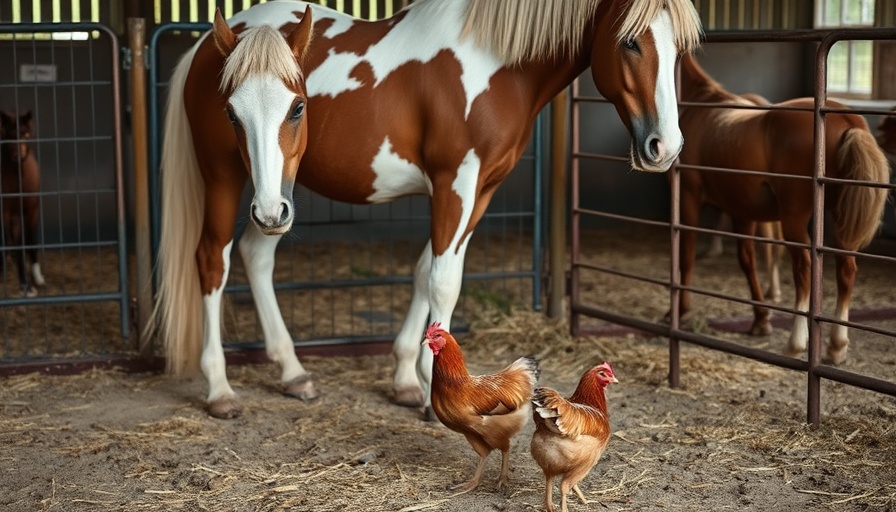
Bringing the Farm to the City: A Guide to Urban Farming
As urbanization continues to grow, many individuals are seeking ways to reconnect with their agricultural roots without leaving their city life. Urban farming offers a unique solution, allowing residents to keep farm animals and cultivate crops right from their backyards. This movement not only provides fresh produce and sustainable living but is also a step towards cultivating community and health consciousness among urban dwellers.
Why Choose Urban Farming?
Urban farming can be a practical and fulfilling way to tackle common urban challenges, such as food deserts and reliance on grocery stores. By integrating farming into your daily life, you can enjoy fresh produce, teach your children responsibility, and even contribute to the environment by utilizing waste and fostering biodiversity.
Choosing the Right Animals for Your Urban Farm
While not every farm animal can live comfortably in an urban setting, several animals thrive in smaller spaces. Here are five animals ideal for your urban farm:
Chickens: The Urban Favorite
Chickens are the quintessential urban farm animal. Their relative quietness makes them an ideal choice for neighborhoods, and the rewards they offer are plenty: fresh eggs, meat, and natural fertilizer. With rising trends in sustainable agriculture, keeping chickens has become increasingly legal, with many cities putting limits on the number allowed.
Rabbits: Compact and Cost-Effective
While often thought of as pets, rabbits are surprisingly profitable. They require less space than larger animals and provide meat, fiber, and compost as they reproduce quickly. Raising rabbits can be an excellent introduction to animal husbandry without carrying the weight of larger livestock.
Ducks: Quacking Up Your Urban Farm
Ducks are similar to chickens in terms of egg production but they offer the delightful advantage of pest control. With duck eggs fetching more than chicken eggs in some markets, they can be both a fun and profitable addition to your urban farming project, given proper care and space.
Goats: Miniature Guardians
Though some city regulations may discourage goat farming, miniature goat breeds can be viable options in larger urban backyards. Goats are known for their ability to clear brush, providing a natural landscaping service in addition to supplying milk, cheese, and companionship.
Honey Bees: Sweeten Your Urban Space
Bees play a crucial role in pollination, which benefits not only your garden but the surrounding flora as well. Beekeeping might seem daunting, but with some research and community support, it can be a rewarding endeavor that yields honey and contributes positively to local ecosystems.
Considerations Before Starting Your Urban Farm
Starting an urban farm requires thorough planning. Research local zoning laws, animal care needs, and community concern about noise and odor. Educational resources are available through local agricultural extensions and urban gardening workshops, ensuring you're informed about best practices.
Conclusion: Join the Urban Farming Movement
Urban farming not only contributes to personal well-being and environmental sustainability, but it can also reinvigorate community ties through shared interest in agriculture. As we continue to embrace sustainable living practices, now is the perfect time to dive into the world of urban farming; whether through raising chickens, rabbits, or even bees, these ventures can lead to a healthier, more connected community.
Call to Action: Get involved in your local urban farming community, participate in workshops, or simply start small in your backyard. There's no better time than now to embrace sustainable practices and make a tangible difference!
 Add Row
Add Row  Add
Add 




 Add Row
Add Row  Add
Add 

Write A Comment